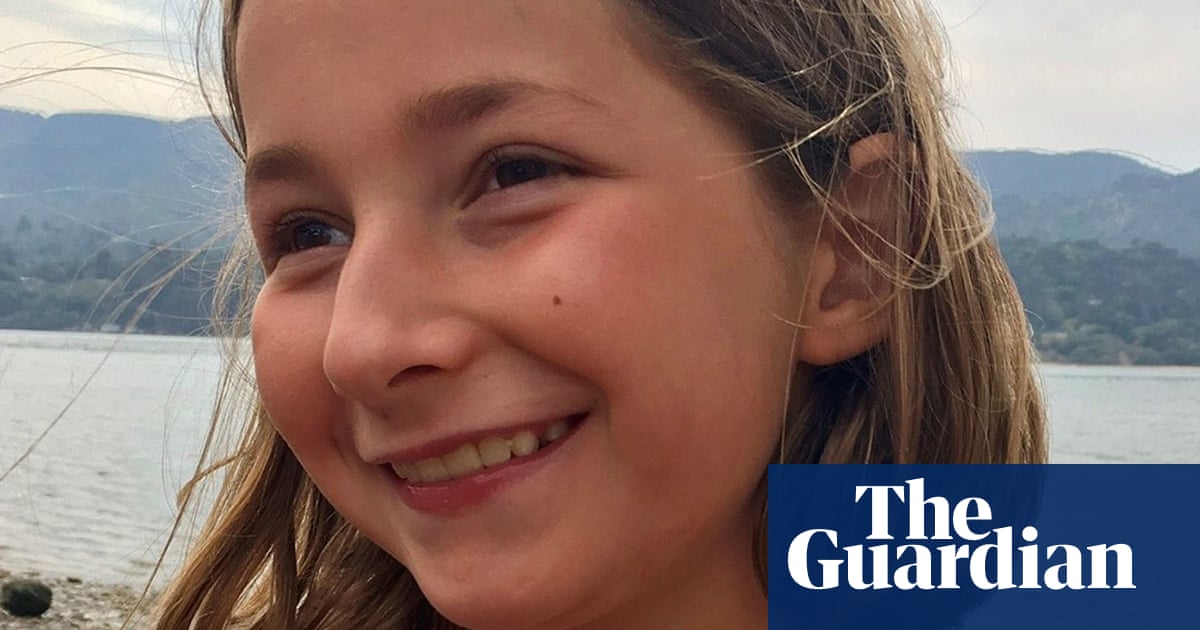A senior doctor has been accused of wrongly failing to escalate the care of a 13-year-old girl whose death led tothe adoption of Martha’s rule, which gives the right to a second medical opinion in hospitals.
At a disciplinary tribunal in Manchester, Prof Richard Thompson was also said to have provided a colleague with “false and misleading information” about the condition of Martha Mills.
Martha died on 31 August 2021 at King’s College hospital (KCH) in south London after contracting sepsis. In 2022,a coroner ruled that she would most likely have survivedif doctors had identified the warning signs of her rapidly deteriorating condition and transferred her to intensive care earlier, which her parents had asked doctors to do.
Thompson, a specialist in paediatric liver disease, and the on-duty consultant – although he was on call at home – on 29 August 2021, is accused by the General Medical Council (GMC) of misconduct that impairs his fitness to practise.
Opening the GMC’s case at the Medical Practitioners Tribunal Service on Monday, Christopher Rose said, based on a review of the case by Dr Stephen Playfor, a medical examiner at Manchester Royal Infirmary, Thompson:
Should have taken more “aggressive intervention” between noon and 1pm on 29 August, including referring Martha to the paediatric intensive care unit (PICU).
Should have gone into the hospital from about 5pm to carry out an in-person assessment of a rash Martha had developed.
Gave “false, outdated and misleading information” in a phone call at approximately 9.40pm to Dr Akash Deep in the PICU team.
Rose told the tribunal that during the call to Deep, Thompson gave a “highly inaccurate description” of Martha’s condition as “stable”. He said Thompson told his colleague that Martha’s systolic blood pressure was at 100mmHg when it had been below that level since 2pm, and did not mention the rash.
Thompson also told Deep that a review of Martha by someone from the PICU team would just get her parents “more stressed and anxious”, the tribunal heard.
Rose told the disciplinary panel: “Prof Deep said Prof Thompson told him that Martha was stable and did not need a review … Martha was not stable and GMC say it was entirely incorrect for Prof Thompson to have given Prof Deep that impression.”
Thompson denies the allegations against him. Rose told the tribunal that Thompson claims that he acted according to established medical literature. The doctor also says that his assessment that Martha did not need a review, as communicated on the call with Deep, was separate to his concern about causing her parents increased stress or anxiety.
Martha was transferred to intensive care on 30 August 2021 by which time she had septic shock, according to a serious incident report produced for KCH.
She had sustained an injury to her pancreas when she fell off her bike on a summer holiday. Doctors at King’s College did not listen to the concerns of her parents, Merope Mills, a senior editor at the Guardian, and her husband, Paul Laity, including that she could have hadsepsis, a significant cause of avoidable deaththat kills an estimated 40,000 people a year in the UK.
Martha’s rule came as a result of pressure on politicians,NHSbosses and doctors after Mills and Laity spoke out about their experience.
The hearing in Manchester continues.
